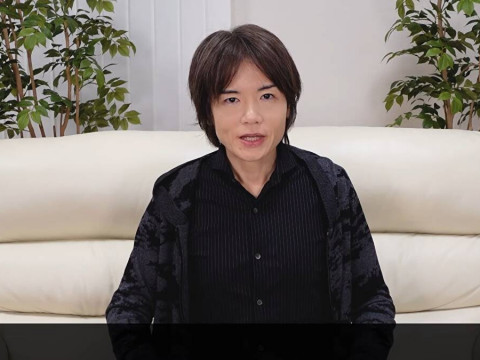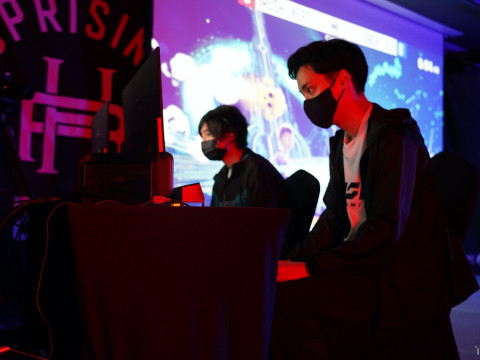
Super Smash Bros. is one of the biggest grassroots esports in the world, which has made it an interesting investment for esports organizations. In the Inven Global Esports Conference panel "Lessons in Leadership: Growing Grassroots Smash Esports," Inven Global reporter John Popko explored how esports organizations can get involved and grow within such a unique competitive space.
The panel:
- Colin Bashor — Beastcoast CEO
- Ryan "L4st" Krichbaum — TL Smash Head Coach
- Hunter Leigh — GG / Head of Esports
- Michael Choi — FlyQuest COO
In terms of looking at Smash as a business investment — it's incredibly unique compared to Counter-Strike: Global Offensive and League of Legends, in part thanks to a lack of developer support from Nintendo.
L4st — Thinking about it from a marketing and branding perspective, Smash is one of the most recognizable esports out there. If you talk to someone who doesn't have any idea what an esport is and talk about LoL, they won't really get it. But if you tell them it's Mario and Luigi beating each other up they'll have at least a basic understanding of it.
Colin — It comes down to cost deficiency. When we started, we were a bootstrapped org. I wasn't even working here. It was just our founder Grant wanting to be in Smash. When it comes to CSGO salaries, you're looking at tons of money every single month. On the Smash side, the market just isn't at that same rate at this point. We see significant value in staying in Smash.
Hunter — Smash punches above its weight on a dollar-for-dollar standpoint. That's one way to get in and stay in. The community is hyper-engaged. They have to be to still play and follow a game that's 20 years old.
The lack of developer involvement is an asset. There's a lot of room for orgs with ambitions to do things. We run our own annual event of medium-size, we have a podcast. There's space in the ecosystem and there's room to own and operate products to package and sell.
In terms of creating a sustainable Smash section for esports orgs, how important is it to have investment into content in addition to players?
L4st — It's incredibly important. Hunter was talking about how much Smash punches above its weight class so to speak in terms of investment and return. You only get that return if you are building a structure such as content, events, etc. Smash doesn't have the prize pools other esports have. You can't rely on just having the best player in the world.
Michael, part of FlyQuest's strategy with Smash is not just signing KoDoRiN but putting him on a weekly competition. What was the philosophy behind that decision?
Michael — KoDoRiN was running TMT before joining FlyQuest. Part of the decision we made as an org was that we wanted to sign a player that has a lot of other qualities. He is the sweetest, most genuine player... That was part of it. Part of our brand being wholesome so it worked perfectly. And we were able to help him with TMT and help him grow his content. He's not just a player but a TO.
For Smash, it's not just signing players, but signing other talent involved. Colin, you have HomeMadeWaffles. What does a person like that — a caster, not a player — bring to a team?
Colin — If you are within Smash, the awesome part is that you can invest across the ecosystem, not just a player. The maximum value you can get from a pro player is brand visibility, maybe a sponsorship on their jersey. It's not massive. You have to do more than just compete.
HomeMadeWaffles is a really hard worker and he understands the scene and the people within the scene. He's a great caster, a great TO, and a great rep of our brand. It's about investing in the person and what they are doing, giving them the structure and backing to improve on things they're already doing. Let him push it to the next level.
What are some lessons you've learned in approaching Smash versus other games?
L4st — For Smash, people are sometimes hostile to outside influencers and unfamiliar influences. That's a direct result of Smash being grassroots. It's not that they're unwelcoming to unfamiliar things. It's more that they are very good at sensing dishonesty or fakeness. Smash is very, very quick to jump on something if they sense it's disingenuous. You can't go in holding your cards close to your chest. You have to be upfront and tell them what you're planning to do and what's going to happen. They've been burned before and they don't want to be burned again.
Michael — Lack of money in the scene is very hard for players to see Smash as a career. They have to rely on creating content. Some have jobs outside of Smash. That's an issue we have right now — not just a lack of developer support but a lack of money.
Colin — If you want to make a career out of Smash, it's crazy to me that the 100 best people in the world can't really make a career out of it. If you're in the top 100 of just about anything else you can monetize that. Even the top 50 of Smash doesn't have a lot of prospect on competitive talents alone.
L4st — The top 10 can survive off of competition alone. It's pretty tight.
Colin — In Melee, it's Mang0 and Hungryox. But they're also entertainers and content creators. Another issue with Melee is the logistics of running a tournament. It's very expensive to run a tournament and hard to coordinate. You need CRTs. There's storage in the LA area full of CRTs.
L4st — And on Ultimate, the world record for unlocking every character is three hours. It usually takes four to five hours to unlock all characters per all the Switches when it comes to setting up tournaments.
Colin — The Smash community is incredible at building that infrastructure.
What changes do you see for the Smash esports scene in the next five to 10 years?
Hunter — That's an incredibly long time in esports. I'm very optimistic for Smash in general. The foundation this esports scene is built on is very strong. And it's only getting stronger. It's on us to steward the esports scene well and make sure we're not burning bridges behind us. There are so many people in it for the right reason. I'm happy where Smash is right now.
L4st — For Melee, I don't think it can die. If anything is going to kill Melee, it was quarantine. But some dude by himself made something online to just stop it from dying. I don't think anything will kill Melee.
Ultimate is still in its formative years compared to other esports. It's about to turn three this December. Compared to CSGO and Overwatch... It's still developing. The top players have emerged but there's room for others to come out and grow their brand.







Sort by:
Comments :0